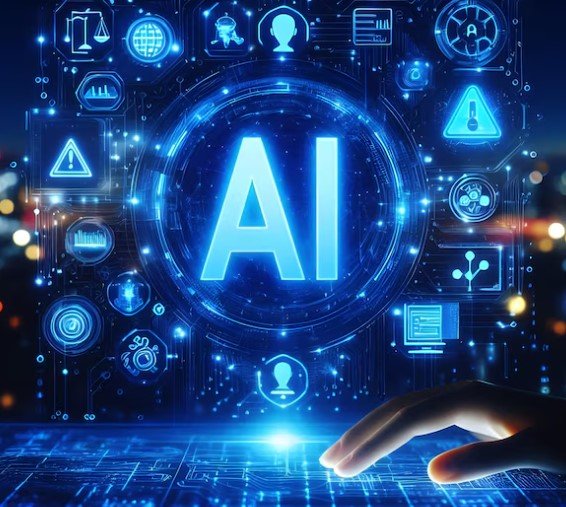As chatbots flood the web with garbage, real people are stepping back—and logging off
For years, we couldn’t quit the internet. We let it gobble up our hours, our focus, our friendships, our dating lives, our sleep. Every spare minute was spent doomscrolling, swiping, or typing. But now, strangely enough, something new is happening. And it’s not because we finally developed self-control.
It’s because of AI.
Not the sleek, sexy, sci-fi AI that helps you organize your life or unlock your phone with your face. We’re talking about the glitchy, sloppy, overly polite, and often downright baffling chatbot-generated mush that’s taking over your search results, your inbox, and even your text threads.
People are calling it AI slop—and the irony is, it might just be gross enough to break our addiction to being online.
When Everything Sounds the Same, Nothing Feels Real
Let’s be honest: most of the internet was already a mess. But AI tools have turbocharged the nonsense. Entire blogs are now churned out in minutes, filled with recycled facts, robotic tone, and zero soul. You Google something simple—like “best shoes for wide feet”—and you land on a page that reads like it was written by a malfunctioning office printer.
Then there’s the chatbot content creeping into more intimate parts of life.
A friend sends a weirdly formal apology. A Tinder match sounds… too smooth. Your coworker’s Slack messages are suspiciously polished.
It all makes you wonder: is anyone really talking to me? Or are we just outsourcing our thoughts to a machine?
At some point, people get fed up. And fed up, in this case, might mean finally doing what no productivity app could ever make us do: logging off.

From Nail Salons to Actual Phone Calls
Emma Marris writes about her friend Lonni, who got so annoyed with AI-infected flirting on dating apps that she started chatting up women at her local nail salon. Like it’s 1997. And guess what? It’s working.
AI hasn’t just poisoned our content streams—it’s making us nostalgic for things like tone of voice, awkward pauses, and actual human weirdness.
In arguments, in dating, even in customer service chats, there’s a creeping sense that we’re not getting the real thing. And when everything feels fake, we start craving whatever’s undeniably real: a hug, a handshake, a walk, a laugh, an in-person coffee where no one’s using Grammarly to compose their feelings.
That longing might be stronger than our screen addiction.
Garbage in, Ghosting Out
There’s a name for the avalanche of AI-generated nonsense making its way onto the web: content farming. But this new wave is lazier than ever.
Bullet-point recipes that forget ingredients. How-to guides written by bots who’ve clearly never used a screwdriver. Articles that confidently explain “how to boil water” and somehow still get it wrong.
At a certain point, even the most tech-obsessed user hits a wall.
-
“I can’t find anything real anymore,” one Redditor posted last week.
-
“I googled a question and every result was SEO garbage written by a bot,” another user complained.
-
“I’m going back to asking my mom.”
That last one? Half a joke, half a truth bomb. AI might just be what pushes us back toward actual human wisdom.
How Bad Is It, Really? Here’s a Look
Let’s not exaggerate—there are still great corners of the web. But they’re harder to find.
| Platform | % Estimated AI-Generated Content (2025) | Human Feedback |
|---|---|---|
| Google Search | 30–40% | “Feels fake” |
| Dating Apps | 25%+ messages AI-assisted | “Creepy” |
| Job Applications | 60% resumes partly AI-generated | “Overwritten” |
| Social Media | 50% of new posts algorithm-influenced | “Bland” |
That’s a lot of bots talking to bots. And real people? They’re starting to notice.
Real Might Become the New Premium
Ironically, as AI slop becomes the default, human interaction might become the upgrade.
Some are already turning to “human verified” services. Think newsletters written by actual people. Forums where moderation weeds out the robot noise. Therapy apps that promise real therapists, not a GPT-powered impersonator.
In dating, there’s a quiet resurgence of in-person events—singles mixers, book clubs, trivia nights. Anywhere people can look each other in the eyes and be sure no one’s copy-pasting their personality from a prompt.
And in friendships? A phone call suddenly feels radical. A handwritten note? Downright revolutionary.
One sentence, but it hits hard: Realness might be the only scarcity that matters online anymore.
The Backlash Has Already Begun
Whether it’s boredom, distrust, or sheer sensory overload, people are starting to pull back.
Anecdotally, digital detox retreats are booked out months in advance. Screen time tracking apps report small but steady declines in daily average usage for Gen Z. And search engines like Kagi and You.com, which prioritize non-AI results, are gaining traction among frustrated users.
We built this addictive internet. But maybe, just maybe, AI’s clumsy attempt to take over is giving us the best gift we never asked for:
A reason to walk away.







